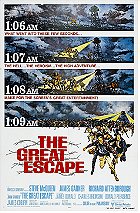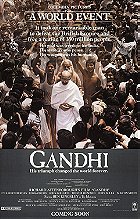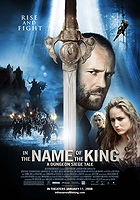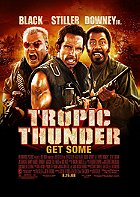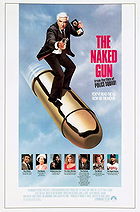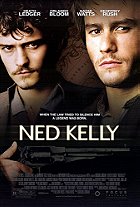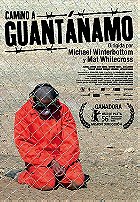I killed Dietrichson - me, Walter Neff, insurance salesman, 35 years old, unmarried, no visible scars...until a while ago, that is.
Yes, I killed him. I killed him for money and for a woman.
I didn't get the money and I didn't get the woman. Pretty, isn't it?"
Billy Wilder's Double Indemnity has always been regarded as the archetypal film noir. If someone was to ask you what the term "film noir" meant, the simplest answer would be to show them Billy Wilder's 1944 masterpiece. If any movie could perfectly define a genre, it would be Double Indemnity. While some consider The Maltese Falcon as the first of the genre in cinematic history, some critics feel that the first real film noir was Wilder's 1944 film. All the crucial constituents we tend to associate with film noir are present: dangerous dames, robust but ultimately malleable men, expressionistic lighting and mood, as well as an incisive and darkly witty script. Double Indemnity also embodies the fundamental skeletal plot outline for a noir: an everyman falling under the spell of a calculating siren and is thrust into a world of sex, shadows, and crime.
Wilder joined forces with the equally inimitable Raymond Chandler to adapt James M. Cain's novel, and they ultimately produced one of cinema's greatest achievements. Wilder and Chandler indeed hated each other quite passionately, however they tolerated each other for long enough to script this amazing film. Together they flesh out characters so memorable, and dialogue so lethal. It's a film of indomitable cynicism and misanthropic acquiescence; the depiction of a world ostensibly unaffected by global war, but uniformly as degenerate and murderous as anything saturating the sands of Europe. Not only is Double Indemnity the ultimate - and greatest - film noir, but additionally it's absolutely perfect from the opening frame to the last.
This cinematic masterpiece is a study of deception, mendacity, self-indulgence, murder, and sex. If you like your film noirs deep, provocative, riveting and engrossing, then it's impossible to go further than these 105 minutes. How perfect are we talking, I hear you ask? To the point that I genuinely forget I was watching a movie. I became irretrievably immersed in the stylish black & white photography and the killer screenplay.
The film commences with an enigmatic, unforgettable opening image: a silhouette of a man on crutches walking towards the foreground as the credits spill onto the screen. From there, we meet insurance salesman Walter Neff (MacMurray) who wanders into the office late at night with a gunshot wound. Neff is arriving at the office this late at night to record a long confession for friend and colleague Barton Keyes (Robinson). Then the film is told in flashback, hence we're aware that there has been lust, murder and betrayal. Double Indemnity is not a "whodunit" crime film...it's a mesmerising "whydunit" film noir. This technique is innovative, and ultimately more effective. We know the conclusion of the story, but how do we reach this conclusion? It's this thought-provoking mystery that skilfully keeps an audience powerfully engaged.
The crux of Double Indemnity is then revealed: Neff heads to an affluent mansion to visit a client with the intention of renewing his insurance policy. This visit leads him to a fateful meeting with the beautiful Phyllis Dietrichson (Stanwyck). Phyllis appears to Neff at the top of the mansion's staircase (an emblematic position of power), wrapped in a towel. At that point she instantly has him...hook, line and sinker. From there, the scheming Phyllis seduces Neff into secretly setting up a life insurance policy for her husband (Powers). The two plan to murder Phyllis' husband and collect the insurance money. Furthermore, they plan to murder the man under peculiar circumstances that would facilitate double indemnity. Neff uses his expert knowledge of his business to conceive a foolproof plan to execute the murder and get away with it.
Billy Wilder is the master of great stories, and Raymond Chandler is the master of gab. People may remember Raymond Chandler penning stories such as The Big Sleep that were transplanted onto the screen. Howard Hawks helmed this particular adaptation. However, The Big Sleep was so convoluted and complicated. At one stage Hawks asked Chandler who had murdered a minor character...Chandler responded with "I don't know!" Yet, despite his reasonably weak stories, the dialogue he brings to the table is perfect word for word, sentence for sentence.
In the case of Double Indemnity, it was Wilder controlling the story and the proceedings while Chandler handled the dialogue. The screenplay is consequently perfect. The snappy banter between Neff and Phyllis in particular is highly memorable.
Neff: "How fast was I going, officer?"
Phyllis: "I'd say around ninety."
It's difficult for modern ears to become accustomed to the poetry of noir dialogue which has suffered severe parodying over the years. Once one has adapted, the effect is intoxicating. The film illustrates a world of dames and saps, sedition and sex. As some have observed, James M. Cain's original novella was perceived as daring (if not crude). Wilder was accordingly compelled to tread cautiously to avoid censorship. As it is, Walter Neff's fixation with Phyllis' anklet offers the film a fetishistic characteristic, and the atmosphere is constantly somewhat sordid.
Director Billy Wilder managed the production with great perception of every nuance. Wilder and his cinematographer constructed the ideal noir look: contrast of light and dark in every scene, as well as shadows and bars of light leaking through Venetian blinds.
Double Indemnity crackles with authentic hardboiled dialogue and sharp-tongued narration of such a standard that it could only have been conceived by James M. Cain and Raymond Chandler.
The entire cast gleefully spit out Chandler's words with great conviction. At the time Fred MacMurray was considered a highly unusual choice for the role of Walter Neff. Someone such as Humphrey Bogart would have been the usual go-to guy for such a job, yet Wilder changed his mind about the character and settled for an actor more clean-cut. MacMurray plays a fast-talking, snappy, intelligent character. He really shines in the role and it's impossible to consider any other actor as the crucial protagonist. This statement is further solidified by viewing the 1973 made-for-television remake with Richard Crenna (yes, that guy from First Blood) filling MacMurray's shoes.
By the 1940s, Barbara Stanwyck was the highest paid actress in the world. Stanwyck had already done melodramas and screwball comedies before really displaying her range as Phyllis Dietrichson. Like many others, she of course was a tad hesitant to accept the part until Wilder laid down the challenge..."Are you an actress or a mouse?" Needless to say, Stanwyck was an actress and anything but mousy.
Edward G. Robinson became famous for his gangster roles, such as his performance in Key Largo. Here, Robinson is a pseudo-father figure to MacMurray's Neff. Robinson's character fulfils the job of sniffing out faux insurance claims. Unfortunately for him, his only blind spot is Neff. When Robinson smells something fishy about the murder at hand, Neff would be the last person he'd suspect. The chemistry between the leads is sizzling.
Following the release of Double Indemnity, renowned director Alfred Hitchcock took out an ad to praise Wilder's accomplishment, saying, "The two most important words in Hollywood are 'Billy Wilder'." It's easy to see why, and there's also weighty Hitchcock inspiration painted on Wilder's approach to the film. For example, there's that moment of extreme tension when Phyllis can't get her car started, as well as the effective, succinct conclusion that leaves the audience in hushed suspense.
Double Indemnity is an undisputed masterpiece from an undisputed master of cinema. Personally, the film quickly reached a high position on my list of favourite movies. It's a superlative film noir that single-handedly defined an entire genre.
In one of the biggest Oscar blunders, Wilder's masterpiece was nominated for several Academy Awards but didn't receive any. Instead the forgettable claptrap known as Going My Way earned Best Picture. I guess everyone occasionally makes mistakes.
10/10
 Login
Login
 Home
Home 183 Lists
183 Lists 1665 Reviews
1665 Reviews Collections
Collections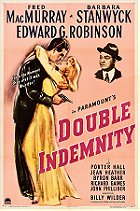
 0 comments,
0 comments, 

